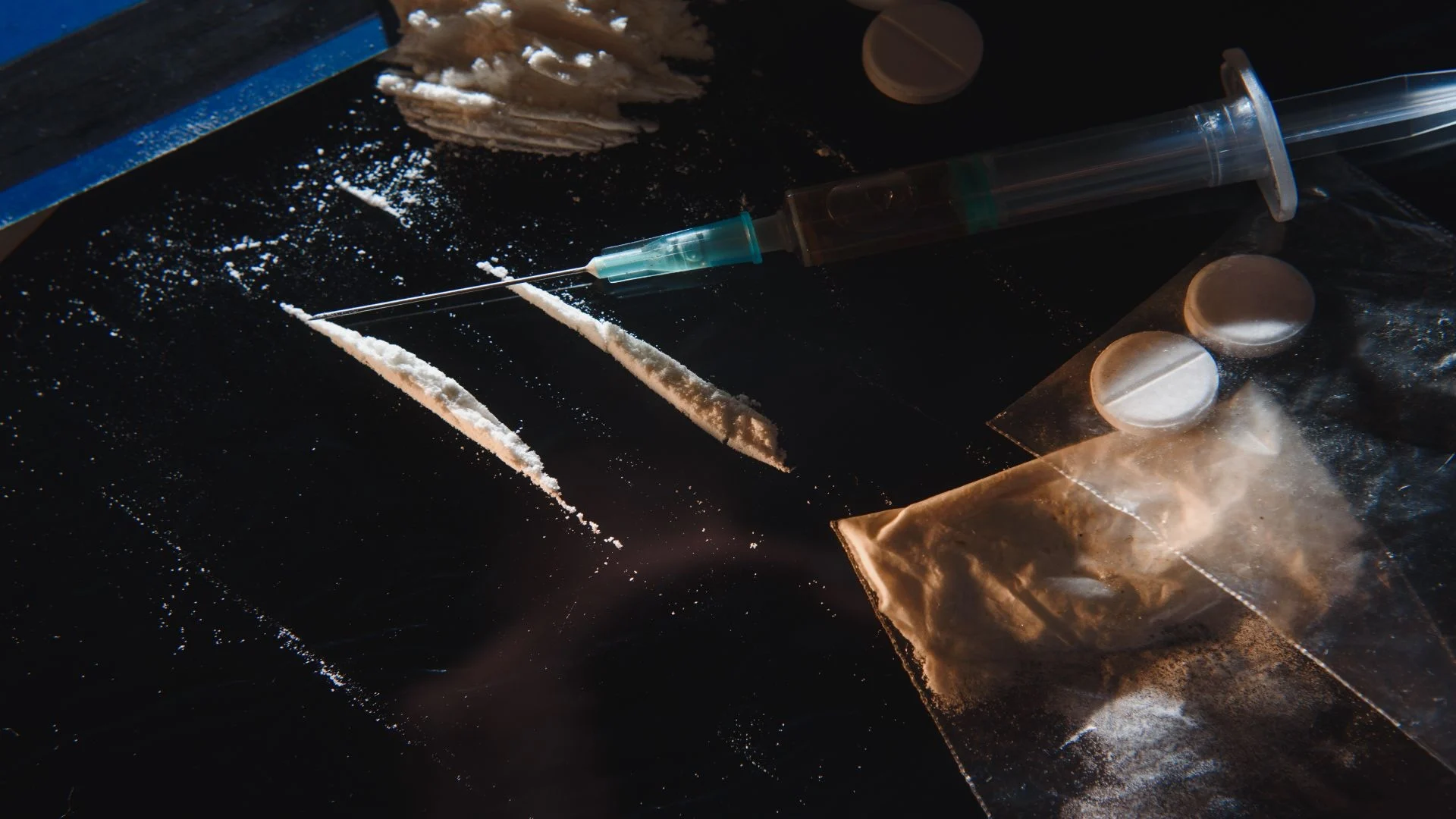Drug and Alcohol
Meth Addiction Treatment

Discover effective meth addiction treatment options designed to support long-term recovery, improve mental health, and help you reclaim control of your life.
What is the most effective treatment for meth addiction?
Behavioral therapies, particularly Cognitive Behavioral Therapy (CBT) and Contingency Management, have proven to be highly effective in treating meth addiction. These therapies help individuals identify and replace negative thought patterns with healthier behaviors, while also utilizing positive reinforcement to encourage and maintain sobriety.
Can meth addiction be treated without rehab?
While some people may attempt to quit meth independently, professional rehab programs significantly increase the likelihood of successful, long-term recovery. Treatment centers provide essential support, medical detoxification, and therapies that individuals may not be able to access on their own, significantly improving their chances for sustained sobriety.
How long does meth withdrawal last?
Meth withdrawal symptoms typically begin within 24 hours of the last use and can last for several weeks. The intensity of symptoms can vary depending on factors such as the length of use and the individual’s overall health. Symptoms may include fatigue, depression, anxiety, and intense cravings.
Are there medications available for meth addiction treatment?
Currently, there are no FDA-approved medications specifically for treating meth addiction. However, ongoing research aims to find pharmacological treatments that can help manage cravings and withdrawal symptoms, improving overall recovery outcomes.
How can I support a loved one struggling with meth addiction?
Supporting a loved one with meth addiction involves encouraging them to seek professional help, offering consistent emotional support, and educating yourself about addiction. Being patient and understanding can help your loved one feel less isolated and more motivated to pursue treatment.
Struggling with meth addiction can leave you feeling isolated, hopeless, and out of control. The physical and emotional toll can take a significant toll on your health, strain relationships, and affect every aspect of your life. Watching a loved one go through it can be just as painful. But you’re not alone—and things can get better.
Meth addiction treatment offers a clear path forward, with proven methods to help you recover and rebuild. Whether you're seeking help for yourself or someone you care about, this article will guide you through practical solutions for lasting recovery and a healthier, more fulfilling life.
What Is Meth Addiction

Methamphetamine is a powerful and highly addictive stimulant that affects the central nervous system. It causes a surge in dopamine, a neurotransmitter associated with pleasure and reward, leading to intense euphoria, increased energy, and heightened alertness. Over time, meth changes the brain’s chemistry, impairing decision-making and increasing the risk of long-term cognitive damage.
Signs and Symptoms of Meth Addiction
Meth addiction can develop quickly, with noticeable physical and behavioral changes. Common signs include:
Extreme mood swings
Rapid weight loss
Paranoia or hallucinations
Erratic or aggressive behavior
Severe dental issues (“meth mouth”)
Skin sores from picking
Sleep disturbances and intense cravings
Why Early Intervention Matters
The more extended meth use continues, the more harm it does—to the brain, heart, and emotional well-being. Early intervention can prevent irreversible damage and improve recovery outcomes. Seeking professional treatment early gives you or your loved one the best chance at lasting recovery and a healthier future.
The Importance of Seeking Treatment
Meth addiction is a powerful and destructive force, and seeking professional help is essential to overcoming it and rebuilding a healthier, more fulfilling life.
The Challenges of Overcoming Meth Addiction Alone
Overcoming meth addiction without professional help is incredibly challenging. Methamphetamine rewires the brain, making it difficult to resist the intense cravings and compulsive drug-seeking behavior.
Many individuals trying to quit on their own quickly relapse due to severe withdrawal symptoms, including fatigue, depression, and anxiety. Without structured support, the cycle of use and relapse can feel endless.
Risks of Untreated Meth Addiction
Untreated meth addiction can lead to severe mental and physical health issues. Psychologically, long-term use often results in paranoia, hallucinations, and even psychosis. Many individuals also develop co-occurring mental health disorders like depression, anxiety, and suicidal thoughts.
Physically, meth addiction takes a heavy toll on the body. It damages vital organs like the heart, liver, and brain, weakens the immune system, accelerates aging, and leads to severe dental issues and skin infections.
Why Professional Treatment Is Essential
Professional treatment provides more than just a way to quit using meth—it’s a comprehensive approach to healing. At The Edge Treatment Center, we offer personalized treatment plans that address both addiction and any underlying mental health conditions, helping individuals regain control of their health and their lives for long-term recovery.

We’re Here To Help You Find Your Way
Would you like more information about mental health or drug addiction? Reach out today.
Comprehensive Treatment Approaches

Effective treatment for meth addiction requires a combination of strategies that address both the physical and psychological aspects of the disorder, ensuring long-term recovery and well-being.
Medical Detoxification
Medical detoxification is often the first crucial step in treating meth addiction. During this process, individuals are monitored by healthcare professionals as their bodies rid themselves of the drug.
Detoxing from meth can be physically and emotionally taxing, with symptoms such as fatigue, depression, anxiety, and intense cravings. Medically supervised detox ensures that patients receive the necessary care to manage these withdrawal symptoms safely.
This professional supervision minimizes the risks associated with withdrawal and sets the foundation for further treatment. The detox process also helps the body stabilize, allowing individuals to begin their recovery with a clearer mind and healthier body, making it easier for them to engage in the next phase of treatment.
Behavioral Therapies
Behavioral therapies play a central role in the treatment of meth addiction. These therapies help individuals understand the underlying psychological and emotional reasons for their addiction and develop healthier coping mechanisms.
Cognitive Behavioral Therapy (CBT)
One of the most effective therapies is Cognitive Behavioral Therapy (CBT). CBT focuses on helping individuals identify and change negative thought patterns that contribute to their addiction.
By addressing distorted thinking and learning new strategies for dealing with stress, anxiety, and other triggers, individuals can break the cycle of addiction and build healthier habits.
Contingency Management
Another widely used method is Contingency Management, a behavioral therapy that uses positive reinforcement to reward individuals for staying sober.
By providing tangible rewards for milestones such as clean drug tests or maintaining sobriety for a specific period, contingency management strengthens the motivation to remain drug-free.
These therapies address both the mental and behavioral aspects of addiction, which are essential for long-term recovery.
Dual Diagnosis Treatment
Many individuals struggling with meth addiction also suffer from co-occurring mental health disorders, such as depression, anxiety, PTSD, or bipolar disorder.
These conditions can make it more difficult for people to overcome their addiction, as mental health symptoms often exacerbate cravings and hinder the ability to manage stress or emotional pain.

Integrated Treatment for Addiction and Mental Health Disorders
Dual Diagnosis Treatment is an integrated approach that addresses both addiction and any co-occurring mental health disorders simultaneously. Treating both the addiction and the mental health condition together leads to more effective recovery.
For instance, a person suffering from meth addiction and anxiety may be given both addiction therapy and treatment for anxiety, such as medication or cognitive therapy, in a comprehensive treatment plan.
This holistic approach reduces the risk of relapse by ensuring that both conditions are adequately managed, allowing the individual to cope with life’s challenges in a healthy and balanced way.
Addressing both addiction and mental health issues in tandem is critical to achieving lasting sobriety and emotional stability.
Aftercare and Relapse Prevention
The journey to recovery doesn’t end after completing a treatment program. Aftercare and relapse prevention are essential components of a comprehensive treatment plan.
Aftercare services provide ongoing support to help individuals transition back into their daily lives and maintain their sobriety.
These services may include regular therapy sessions, support groups, or sober living housing, which help individuals stay engaged in their recovery and avoid triggers that may lead to a relapse.
Developing Relapse Prevention Strategies
Relapse prevention strategies are designed to help individuals identify and manage the triggers and stressors that could cause them to return to substance use.
These strategies often include developing healthy coping skills, ongoing therapy, and participating in peer support groups. By learning how to manage cravings and deal with challenges without turning to meth, individuals increase their chances of maintaining long-term sobriety.
Incorporating aftercare and relapse prevention into treatment ensures that recovery is sustained, allowing individuals to continue progressing on their journey to a drug-free life.
At The Edge Treatment Center, we provide a comprehensive aftercare program that supports individuals every step of the way, from the moment they begin treatment through to long-term recovery.
Personalized Care at The Edge Treatment Center
We believe in providing individualized treatment plans that cater to the unique needs of each person, ensuring a personalized path to lasting recovery and a healthier future.
Individualized Treatment Plans
At The Edge Treatment Center, we recognize that each person's experience with addiction is unique. That’s why we create personalized treatment plans tailored to fit each individual's specific needs.
Our team of professionals conducts a thorough assessment to understand their physical, emotional, and mental health, ensuring that every aspect of recovery is addressed.
Whether dealing with meth addiction or co-occurring disorders, our holistic approach ensures a well-rounded recovery process.
Success Stories and Testimonials
Our success stories reflect the positive impact of our personalized care. Many individuals have found lasting recovery and transformed their lives with the support and guidance provided at The Edge Treatment Center.
These stories serve as a testament to the effectiveness of our treatment approach and the possibilities for healing and a better life.
Taking the First Step Toward Recovery
Deciding to seek help is the most critical step in the recovery process. If you or a loved one is struggling with addiction, we encourage you to reach out to us. Contact us today to start your journey toward healing and regain control of your life.

We’ll Lead You to New Heights
Do you have more questions about mental health or drug addiction? Reach out.
Meth Addiction Taking Over Your Life? We Can Help
If meth addiction is controlling your life, it's time to take back control. At The Edge Treatment Center, we specialize in providing personalized treatment plans designed to help you overcome meth addiction and rebuild your life.
With a comprehensive approach that includes medical detox, behavioral therapies, and ongoing support, we can guide you through every step of your recovery journey. Don’t wait any longer—take the first step toward reclaiming your future. Contact us today to start your recovery with meth addiction treatment that genuinely works.

We’re Here To Help You Find Your Way
If you or a loved one is struggling with addiction, there is hope. Our team can guide you on your journey to recovery. Call us today.
Written by
The Edge Treatment Center
Reviewed by
 Jeremy Arzt
Jeremy ArztChief Clinical Officer
Drug and Alcohol
September 6, 2025
